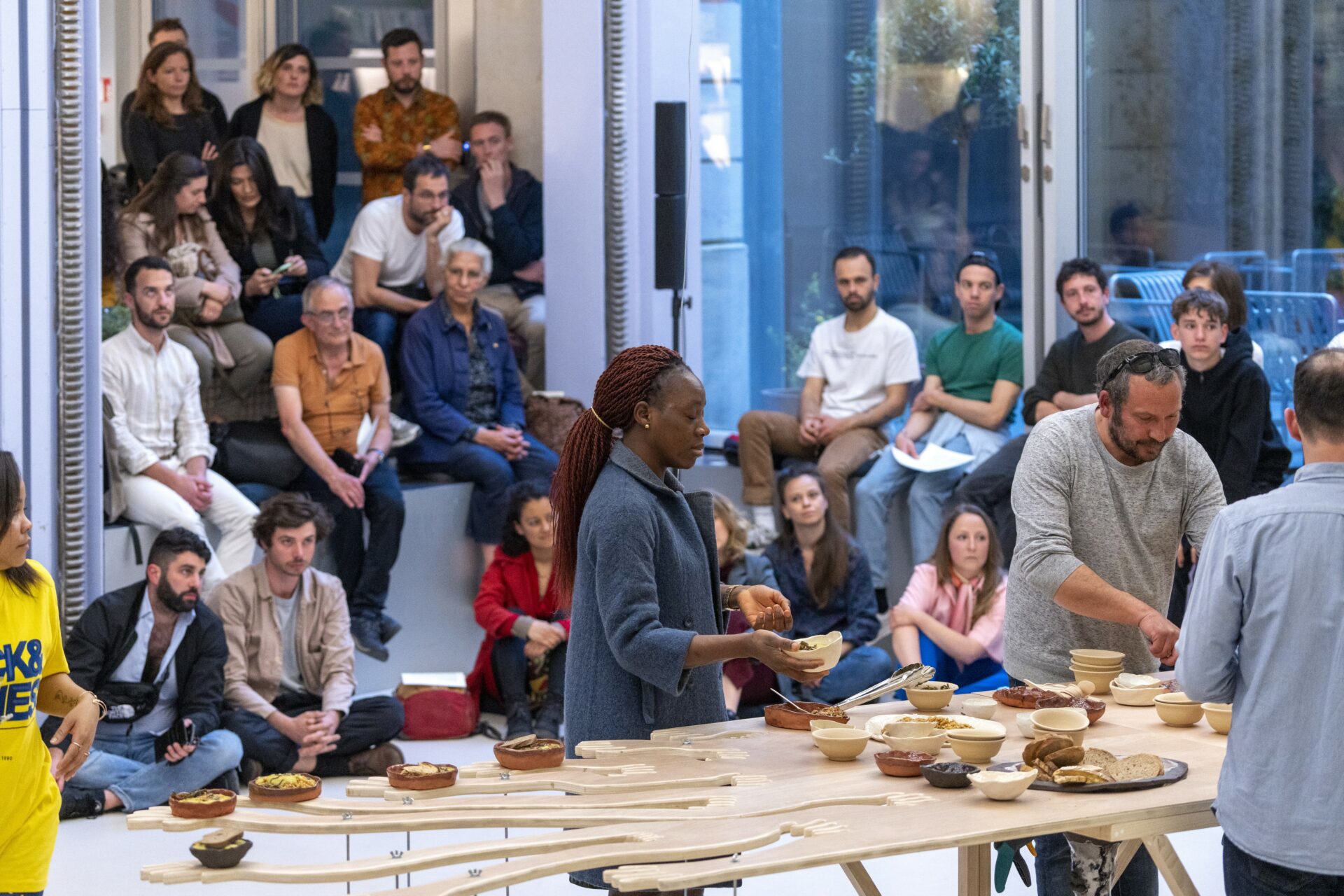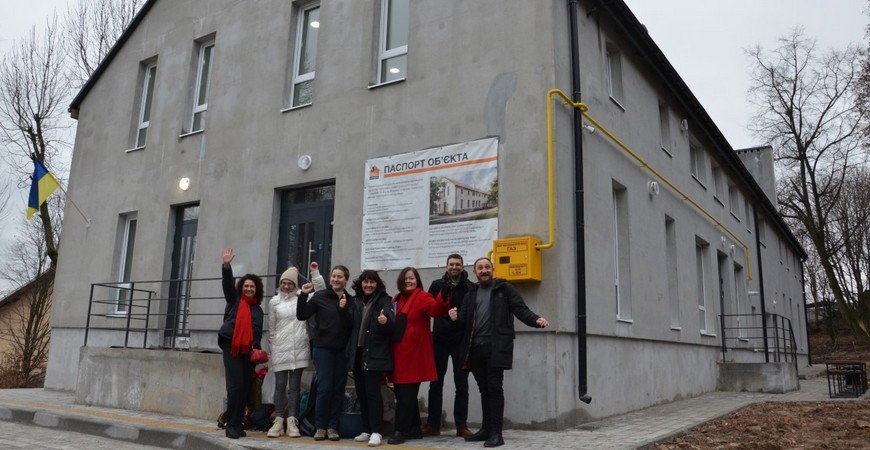Emmaus Solidarity, off the streets and back to life
We met with Lotfi Ouanezar, the director of one of the biggest Emmaus groups in France and which specialises in emergency welcome for people in street situations. Emmaus Solidarity (which was originally called Association Emmaus) was created following Abbé Pierre’s appeal in 1954. The objective in the 1950s was to launch initiatives to provide shelter to people living on the streets thanks to the donations collected following the ‘54 appeal.
Hi Lotfi, can you give us an idea of what Emmaus Solidarity is today in terms of your activities and the amount of people you welcome into your group?
Since its creation Emmaus Solidarity has been fighting precarity and poverty by providing support for the most fragile members of our society. We can now put the skills and talent of 900 employees, 500 volunteers and 400 members behind our struggle. In an unconditional manner we provide support for 6,000 people thanks to a wide range of services, there are 118 options that we offer in total including day centres, emergency accommodation centres, get back to work centres, adapted housing and doing the rounds. We work in several domains in order to provide more global social support: cross-cutting missions support our field teams for access to rights and healthcare, for training and employment, for access to sport, for access to culture and for developing practices which foster citizenship and access to housing. We intervene specifically for humanitarian and meteorological emergencies (the Afghan and Ukrainian crises, refugee camps, heat waves, extreme cold, etc.).
Your operations are funded thanks to public donations but you mainly rely on public funds, how do you keep your political independence?
We are known for our independent lobbying of the government and the public authorities. Our field expertise also brings legitimacy to our lobbying initiatives. When reaching out to the media, the general public, business and politicians we remind them of our values and our demand to provide people in street situations with support, notably in the form of unconditional welcome. We often lead our lobbying initiatives as part of collective efforts, via networks of associations and via federations, as doing so brings more weight to our actions. However, we have no difficulties in outlining our expectations and highlighting the contradictions of the departments which finance us. Let’s not forget that the State is responsible for fighting against exclusion and that Abbé Pierre thus asked for State funding to help our association to fulfil its mission back in the days when we were known as Association Emmaus. Since then we have been carrying on with this mission, lobbying the departmental, regional and national authorities as well as continuing with our field initiatives. Both of these aspects are combined to make a strong public policy focused on supporting the most fragile members of our society.
Like all Emmaus groups you attach a lot of importance to the dignity of the people you welcome into your group. You have notably developed some great cultural projects as well as creating well-being areas…
Of course, dignity for all is at the heart of our initiatives. This is of course linked to access to rights as well as other aspects and other levers which can help people to restore a feeling of citizenship and of self-confidence. Our cross-cutting missions also feed into our global support efforts for the people we meet. We focus on health, sport, training, employment, culture, citizenship, leisure and games in order to provide this all-encompassing support. In partnership with a range of public and private stakeholders our teams create projects and innovate in order to meet people’s needs and to remain in step with the times. With L’Oreal and their foundation, for example, we have created Beauty and Well-Being spaces which enable poor people to access hygiene and care products as well as providing services for hairdressing/hairstyling. These services help people to restore their self-image, to have the choice to look after themselves, to take pleasure in doing so and to find time for themselves. We also try to make culture accessible to all by providing free tickets and by organising creative projects which call upon the creative talents of all. For example, the Emmaus Solidarity Prize for Contemporary Art attracts volunteer panel members, art connoisseurs and others to choose the artists that they would like to work with. This is a long-term, passionate adventure and a source of pride for all involved.
The people we welcome into our group have changed a lot since 1954 – many of the people in street situations in France nowadays are exiled persons who do not have work permits, including a lot of families.
Despite the efforts made by the State in recent years the numbers of homeless people and people in vulnerable situations are not dropping, they are actually continuing to increase. The figures of the Abbé Pierre Foundation on poor housing in France are alarming and can enlighten us in many ways. 4.1 million people are poorly housed in France whilst 330,000 are permanently homeless and these figures are truly unacceptable.
We have also noticed in recent years that extreme poverty is taking on new faces. It now affects families, women (14% in Paris according to the last Nuit de la Solidarité [Night of Solidarity]), people with low incomes, people with low pensions, poor workers, etc. Poverty does not only affect people who have been on unusual journeys in life, as we often tend to think. We have had to adapt our welcome response to better meet the needs of exiled persons in recent years. Our unconditional welcome has adapted over time and our biggest challenge nowadays is to change people’s perspectives on exiled persons and to help them to avoid the pitfalls of fear and prejudice. People who have come from elsewhere can be a source of great wealth and diversity for our country, they have their own stories, knowledge and talent. We need to stick together and show solidarity if we want to live better together as a community and in order to tackle the climate and economic challenges of the years ahead.
Last of all you have also played a key role in welcoming Ukrainians here in France…
Our association has welcomed 7,500 Ukrainians since 3 March 2022, via a welcome centre for vulnerable groups in Pantin and thanks to several temporary housing centres. In light of the conflict the welcome of these Ukrainians has been given unprecedented backing from the French State, helping to create a formidable response led by a network of associations. This experience has shown us that when there is political will, there is a way. We want this experience to be used as an example for the welcome and support of people in vulnerable situations and who are seeking refuge in France.

©Marc Domage




